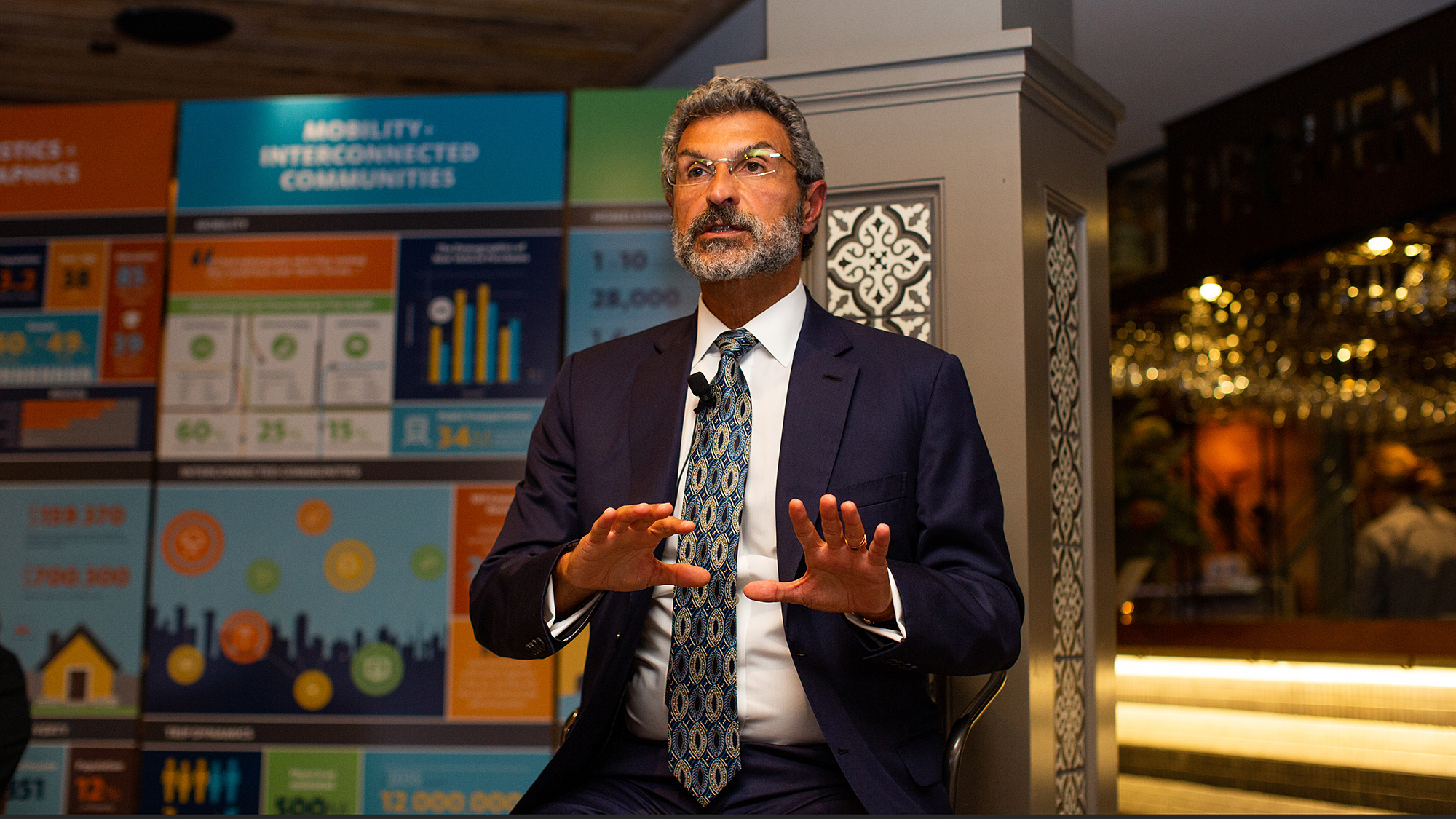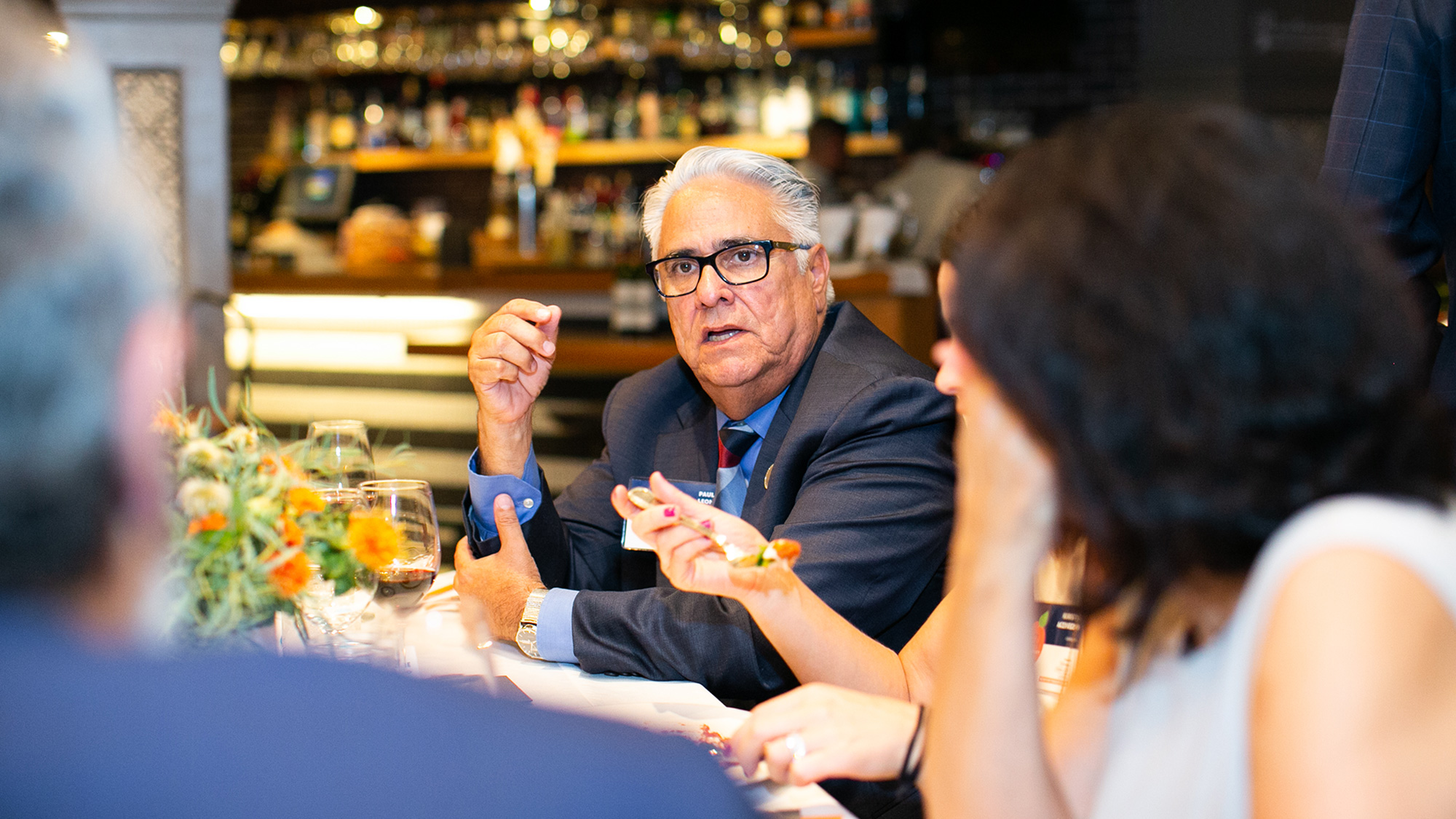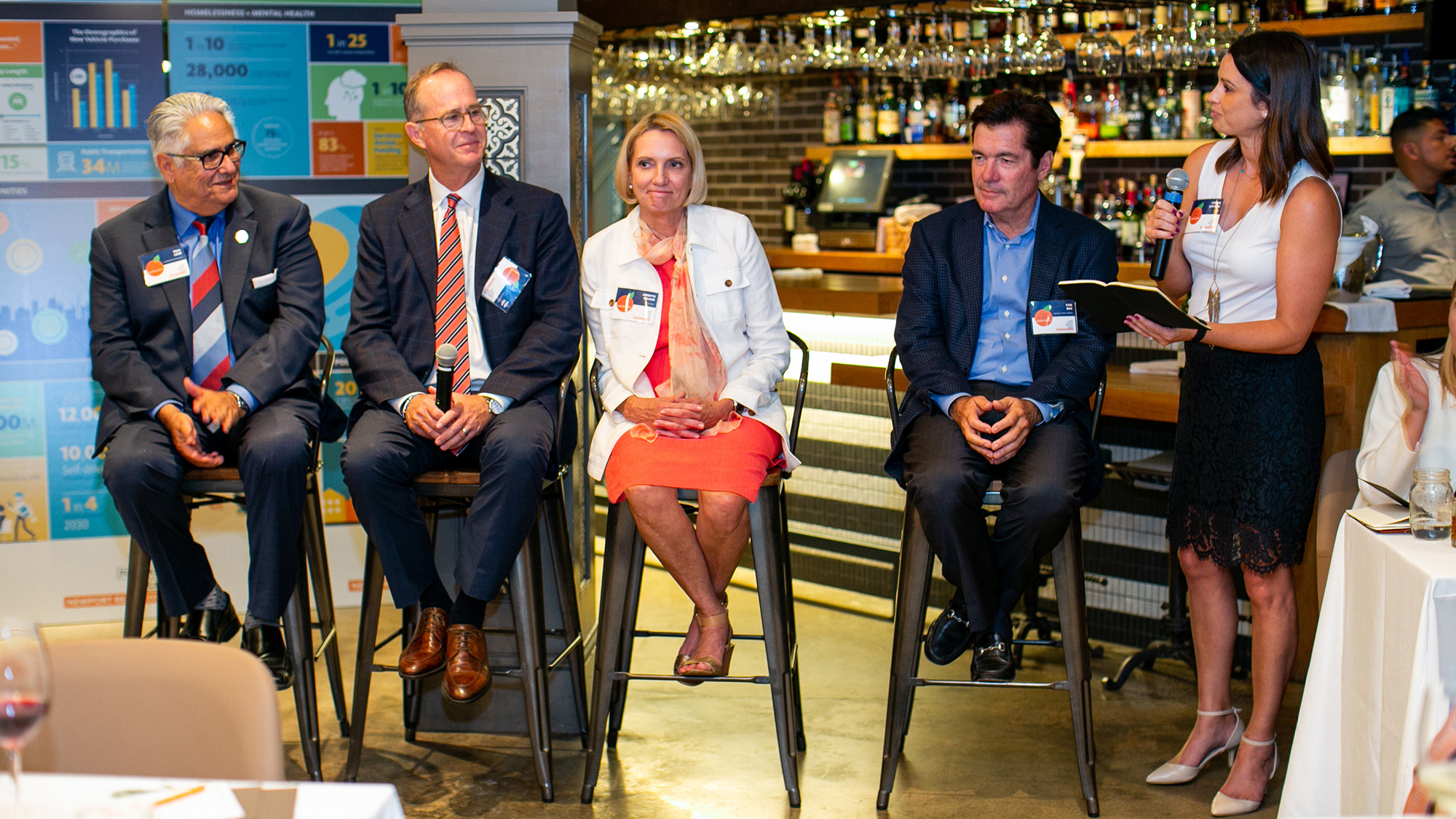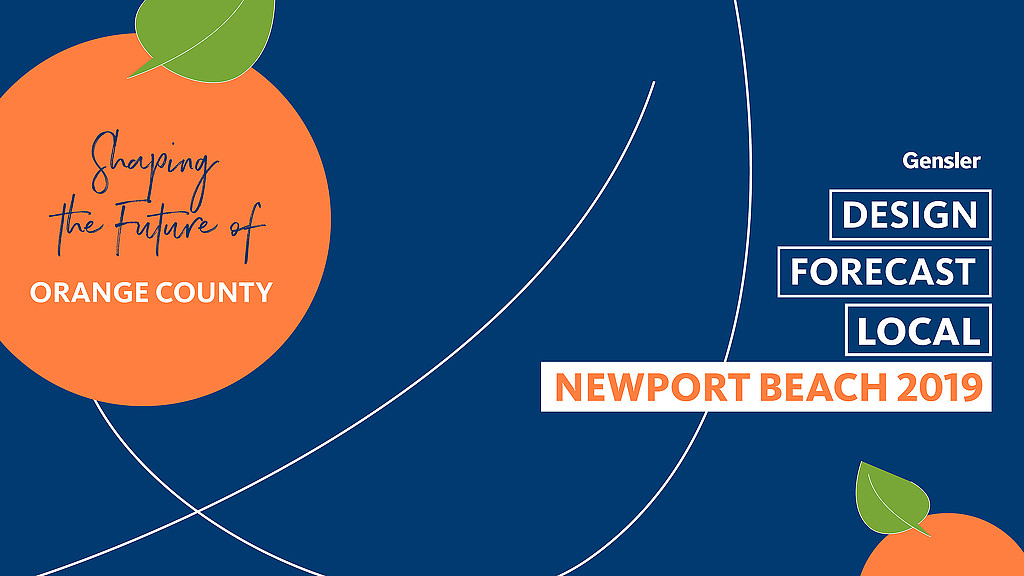Design Forecast Newport Beach: Shaping the Future of Orange County
Editor’s note: This post is part of Gensler’s Design Forecast Local, a series of hyper local conversations with our clients about the topics that matter most in our cities.
On Sept. 5, 2019, Gensler’s Newport Beach office hosted a dinner event with round table and panel discussions, "Shaping the Future of Orange County," to spark a dialogue around the evolving market in our local communities. The event brought together an intimate, select group of top influencers from varying perspectives across nonprofit organizations, developers, politicians, and business leaders. Topics ranging from mobility to interconnected communities, social impact, and climate change were all discussed. Gensler Co-CEO Andy Cohen addressed the invited guests with opening remarks and Emile Haddad, president & CEO, FivePoint Holdings LLC, delivered a compelling keynote address.

We need more partnerships between policy makers and developers.
Orange County has a lot of momentum for growth; however, we need new models of innovation in order to bring about lasting change. Panelists discussed the need for more partnerships between public and private sectors. For example, the entitlement and construction process is so costly and time consuming that it can be challenging for businesses to focus on improving their communities, especially with sustainable measures. Partnerships between policy makers and developers can maximize our impact.

Housing and talent are interrelated. We are seeing a lot of “boomerang talent,” where our workforce leaves to gain more experience within more diverse urban city centers and then returns when they are ready to settle down into a suburban demographic. As Emile Haddad noted, “young people want the scrambled egg,” when speaking of their interest in living in cities like San Francisco or New York City, which offer a tapestry of metropolitan urban centers and neighboring edge cities. The diversification of future development in Orange County will help to attract and retain younger talent, while also supporting our aging generations. A more diverse human experience will also keep our communities healthy. Orange County tends to be automobile-centric, with divisions of space by strict zoning requirements. Future development needs to look at more mixed-use interactions that allow for vibrant diverse communities to flourish.
The housing crisis in Orange County is urgent — and fixable.
The cost of living in Orange County is among the highest in the state. One in 10 individuals in Orange County live below the poverty line, and 6,860 individuals were counted as experiencing unsheltered and unsheltered homelessness during the OC 2019 Point in Time Count. Our biggest concern in Orange County is “fringe homeless” — those who are right on the edge of homelessness. Panelist Paul Leon, President & CEO, Illumination Foundation, suggested that we can address homelessness in the county by aligning community groups across our city borders to tackle the issue.

We need to look for ways to minimize car travel.
Attracting talent is difficult because of the silos that exist within the communities of Orange County, which contributes to increased commute times. Alternatives to car ownership are limited in Orange County and should be better explored and utilized. While the state has the nation's strictest vehicle emissions regulations, the county is among the 25 smoggiest counties in the U.S., according to the American Lung Association’s 2019 State of the Air Report.

No one organization, or even sector, can solve the pervasive challenge of mental health and substance use disorders alone. In Orange County, there are exceptional services, but they function in silos. With an intentionally coordinated system, created in public-private partnership, the community will benefit from best-in-class care. In order to create and implement long-term solutions, we need to bring together health, education, business, and faith-based organizations.
